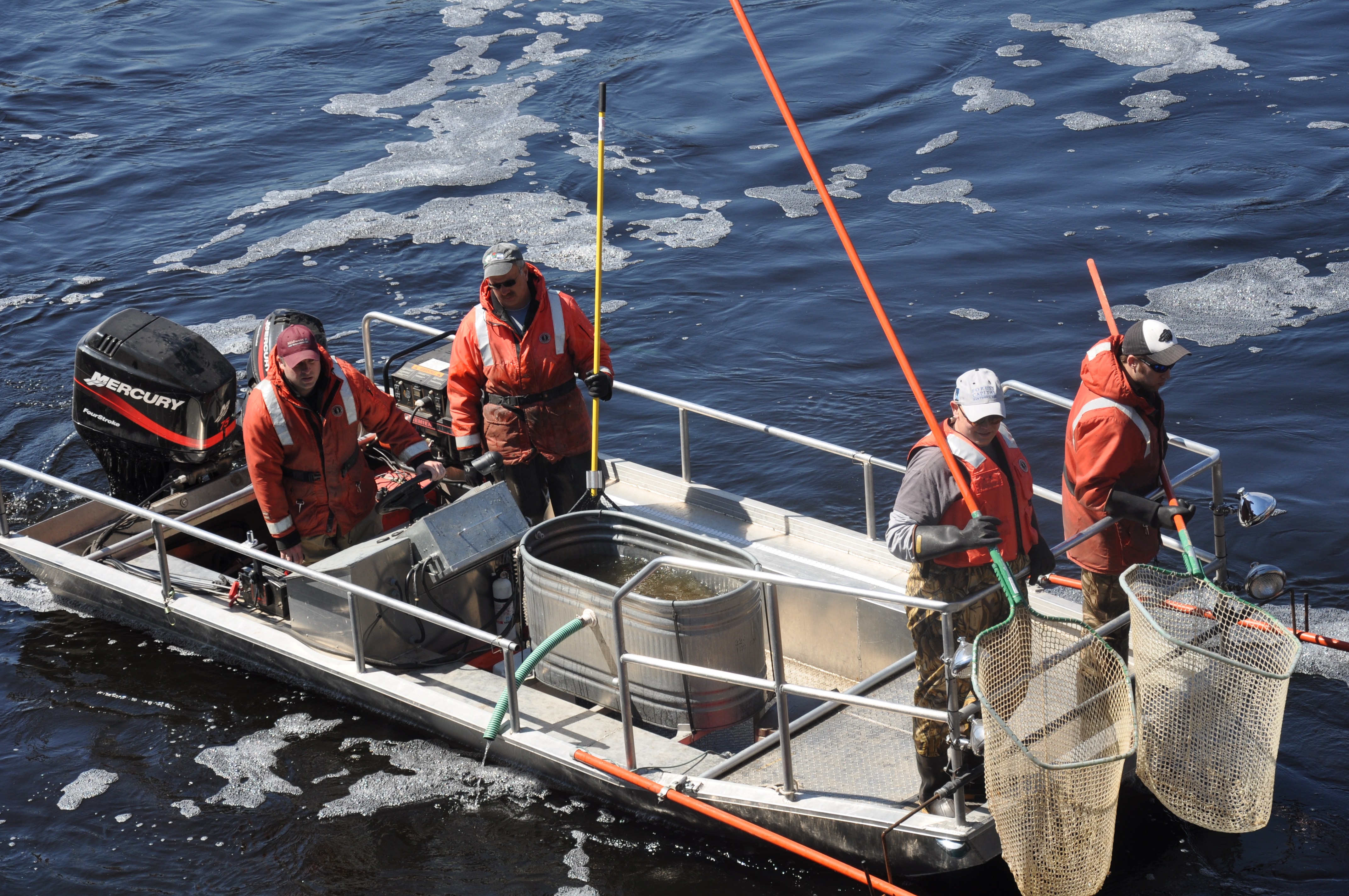
Interested students
are encouraged to review the research interests of unit scientists Dr. Dan Isermann and Dr. Jared Homola by referring to the federal unit webpage, http://www.coopunits.org/Wisconsin_Fish/. To express interest in a graduate student position with the unit, please send the following:
- Letter of interest
- Current resume
- Photocopy of undergraduate transcript *
- 3 References
* If you are selected for our program, we will ask you to send official copies of your transcripts
Mail to:
Wisconsin Cooperative Fishery Research Unit
College of Natural Resources
University of Wisconsin-Stevens Point
800 Reserve Street
Stevens Point, WI 54481
 Electronic: The above materials may also be sent electronically to coopfish@uwsp.edu.
Electronic: The above materials may also be sent electronically to coopfish@uwsp.edu.
We
usually hire 2-4 students each year on research projects ranging from
habitat assessment, population dynamics, conservation genetics,
land-water linkages, and fish ecology, among others.
Students are selected based on academic
competitiveness and experience. Students selected for graduate work with
us will be asked to submit a formal graduate application package to the
University of Wisconsin-Stevens Point College of Natural Resources.
Graduate student assistantships are funded from several sources and include a graduate stipend with tuition paid (for both resident and non-resident students). Contact the program assistant at (715) 346-2178 or e-mail coopfish@uwsp.edu with any questions.
Undergraduate Student Opportunities
The
College of Natural Resources at the University of Wisconsin-Stevens Point will
support fisheries-focused summer research experiences for five
undergraduate students during the summer of 2023. Funding for these research
experiences has been provided through the Freshwater Collaborative of
Wisconsin. Students selected for these positions will work directly with
faculty, research scientists, and graduate students at UWSP on various
research projects. Research experiences will require travel to research sites throughout Wisconsin, including overnight stays, to collect fish and data in the field, followed by processing and analyzing samples in a laboratory setting. Selected students will work with research partners from around the state, including the Wisconsin Department of Natural Resources and the U. S. Fish and Wildlife Service, as well as researchers and students from other universities.
Undergraduates will use data affiliated with their research topics to test specific hypotheses, providing opportunities to develop data management and analytical skills. Research topics for selected undergraduates may include:
- Smallmouth Bass Nest Survival Rates along the Door Peninsula, Lake Michigan
- Movements and Spawning Locations of Lake Whitefish in Green Bay
- Brook Trout and Other Fishes Use of Spring Ponds in Central Wisconsin
- Buffalo Population Characteristics in Wisconsin Lakes and Rivers
- Fish Population Responses to Removal of Bass, Bluegill, and Crappies in a Wisconsin Lake
- Development of Point-of-Use Environmental DNA Detection Technologies
- Lake Whitefish Genetic Structure throughout the Great Lakes
- Assessments of Fish Stocking Success using Genetic Tools
Expectations are that each student will present the results of their research findings at one or more venues, and there is the potential for their research to contribute to papers published in peer-reviewed scientific journals.
The primary goal of these research experiences is to expose students to the research process and prepare them for securing advanced degrees and future employment.
Selected students will be paid $15/h for 12 weeks (June 1-August 31, 2023).
To apply: Interested students should email Dan Isermann, dan.isermann@uwsp.edu, by January 10 for full consideration.
- Unofficial transcripts
- Contact information for two references,
- 1-page cover letter
- At a minimum, the cover letter should include three sections describing:
- Why you are an outstanding candidate for the REU program.
- What do you hope to gain from the REU experience?
- Your future career aspirations.
